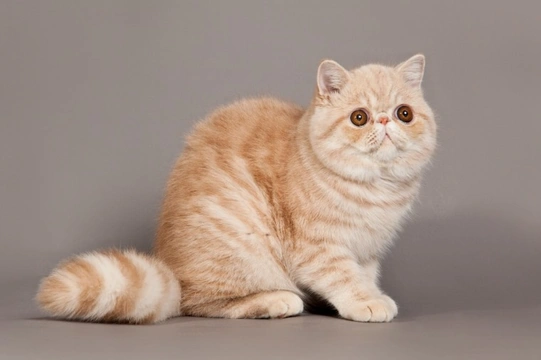
10 things you need to know about the exotic shorthair cat before you buy one
The exotic cat or exotic shorthair is a breed of cat that was first developed in the USA in the 1950s, and which is a close relative of the longhaired Persian cat breed.
These good looking, loving and cuddly cats are quite eye-catching and have very nice personalities too, and whilst they’re not one of the UK’s top ten most popular cat breeds, they still have an enthusiastic following and lots of appeal.
If you are wondering if the exotic shorthair cat is the right choice of breed for you, it is really important to do your research and find out as much as possible about the breed before you go ahead and commit to a purchase, and this article is designed to get you started. Read on to learn ten things you need to know about the exotic shorthair cat before you go ahead and buy one.
1. The exotic shorthair is closely related to the Persian cat
The exotic shorthair breed was developed as a shorthaired version of the well-known and ever-popular Persian cat breed, outcrossed with other breeds including the Burmese and the Russian blue.
This means that there are a lot of similarities between the Persian and the exotic shorthair, other of course than the fact that the Persian has a long coat.
2. The exotic shorthair has a brachycephalic face
Like the Persian, the exotic shorthair cat has a flat face with a short nose and soft palate, and this trait is known as being brachycephalic. This isn’t a trait that evolves and becomes reinforced naturally in the wild, and is achieved by selective breeding.
Brachycephalic faces can cause problems for the cats that possess them, including a tendency to overheat, shortness of breath, crowded dentition, and a heightened risk of injuries to the eyes.
3. Care should be taken to choose a cat with moderate features
When choosing an exotic shorthaired kitten, it is important to choose one with moderate features and whose face doesn’t have an overly exaggerated flatness to it. This is because the health issues that can arise in brachycephalic cats are much worse in those with overly flat faces, and cats with moderate faces are much more likely to be healthy and fit for life.
When viewing kittens, also assess the flatness of the face of their queen too, and sire if present.
4. A recessive gene can cause some exotic shorthairs to be longhaired!
Because the exotic shorthair was developed from the Persian cat, they share more similarities on a genetic level than they do differences. This means that some cats of the breed still carry a recessive gene that can result in a longhaired kitten if bred with another cat of the breed that also carries the same gene, although this is relatively rare. This results in some classification problems, in terms of whether these kittens are considered to be exotic shorthairs, Persians, or even a third option, exotic longhairs!
5. The breed is generally calm and laid back but a little more playful than the Persian
The exotic shorthair is a lot like the Persian in personality, and they tend to be fairly quiet and laid back cats that are not overly playful and that make for great lap cats. However, they can be silly and will play sometimes, like all cats, and they are generally considered to be a little more lively than Persians.
6. Exotic shorthairs may share some common Persian health problems
In conjunction with the many other traits exotic shorthairs commonly share with Persians, they are also associated with many of the same hereditary health issues, and all prospective exotic shorthair kitten buyers should investigate these in detail before committing to a purchase.
The brachycephalic features are one point to note and Persian cats and so, exotic shorthairs too, tend to be more prone than most breeds to kidney problems.
7. Exotic shorthairs have large heads and a cobby appearance
The exotic shorthair’s physical appearance is fairly well rounded and cobby, with a large, wide head and teddy bear-like appearance that many of us of a certain age will find somewhat reminiscent of Bagpuss!
8. The exotic shorthair is a GCCF pedigree breed
Like the Persian cat, the exotic shorthair is recognised by the GCCF as a pedigree cat breed, and so kittens with full exotic shorthair ancestry can be registered for showing purposes and as part of health profiling schemes. They are also recognised by all of the other major international cat breed registries too.
9. Exotic shorthaired cats are moderately expensive to buy
The average asking price for pedigree exotic shorthair cats in the UK as of August 2019 is £679 per cat, and for non-pedigrees, around £479 per cat. This is roughly around the average across the board for most pedigree cat breeds in the UK.
10. Exotic shorthairs generally have a reasonable lifespan, but this can be variable
The average lifespan of exotic shorthair cats in the UK is 12-15 years, which is about the norm for a pedigree cat breed. However, the lifespan and health of individual cats can of course be highly variable, and whilst you should try hard to choose a healthy kitten from healthy parents. There are no guarantees of a lifetime of good health for any cat breed, and all prospective kitten buyers are advised to factor in the cost of insuring their cat as well as its purchase price.



